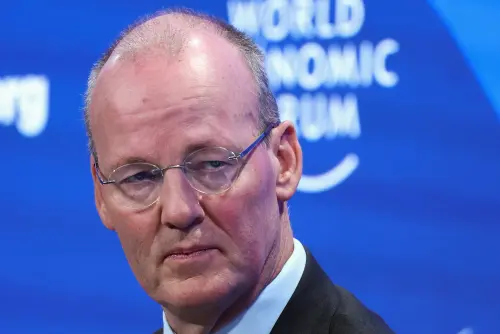Europe is justified in increasing defense spending, but this will likely raise debt levels and complicate predictions about inflation and monetary policy direction, according to Dutch central bank chief Klaas Knot.
The European Central Bank (ECB) has cut interest rates six times since June but has been cautious about signaling future actions, citing the need for vigilance in the face of pervasive uncertainty and the necessity of pragmatic, meeting-by-meeting decision-making.
Key challenges such as a potential trade war with the U.S. and the need to boost defense spending in response to America's diminished role could have profound and lasting effects on prices and growth. Knot acknowledged that a temporary exemption from budget rules for additional defense spending is defensible but emphasized that this exemption should not be permanent, as public debt levels in the EU remain excessively high.
This anticipated increase in military spending may stimulate growth but has already led to higher borrowing costs, creating conflicting pressures on inflation. The prospect of a trade war further complicates the economic landscape. Some analysts predict that a full-scale trade conflict, accompanied by retaliation, could slow euro zone growth by half a percentage point in the first year while simultaneously increasing inflation by a similar rate.
"The uncertainty about the direction of inflation is larger than it has been in a long time," Knot stated, expressing that he remains open-minded regarding the ECB’s policy decision in April.
Market-based longer-term inflation expectations surged following the announcement of the German fiscal package but have since declined slightly, now standing at 2.15%, still above the ECB's 2% target. Knot remarked on the difficulty of predicting the trajectory of interest rates and European inflation amid rapidly evolving developments.
Investors currently see about a 60% chance of a rate cut in April, with another reduction fully priced in by June and expectations for an additional cut by the year's end, potentially lowering the deposit rate to 2%.
Knot refrained from making predictions about the trade war's impact, noting that U.S. policy is fluid and uncertain. "We have to judge the U.S. administration by its actions; it's challenging to evaluate them solely on their statements," he remarked.
